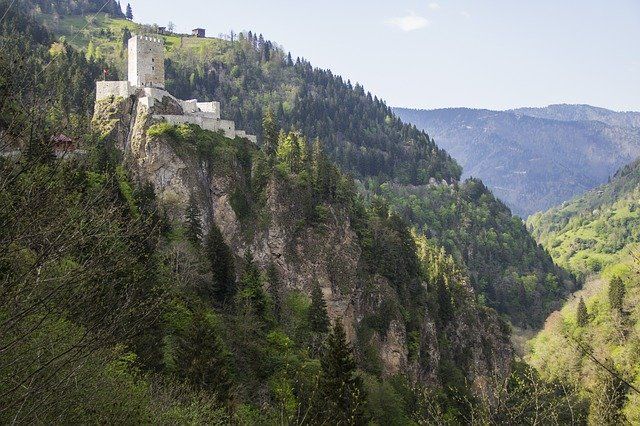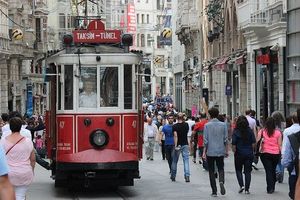Area:
301, 000 square miles. 3% in Europe, bounded by Bulgaria and Greece; 97% in Asia, bounded by Georgia, Armenia, Iran, Iraq and Syria. The Bosphorus and Dardenelles join the Black Sea to the Mediterranean. Istanbul controls these sea links, and is Turkey’s chief port and commercial city.Environment:
The plateau of Anatolia is semi-desert. It contains the salt lake of Tuz as other large mountain lakes. The northern Pontic mountain ranges are wooded. Fertile plains exist on the south coast of the Black Sea. Wild boars are abundant in the forests, and wolves, wildcats, hyenas, jackals and bear are present in the remotest areas.Population: 63 million.
Life expectancy: 72 years.
Cities: Istanbul 7 million; Anakara 3 million (capital); Izmir 2 million.

Ethnic groups: Turks 79%; Kurds 16%; Arabs 1.6%; Muslim minorities 1.8%; others (including refugees from Iran) 1.6%. Language: Turkish. Literacy: 76%.
Economy
Turkey is one of Europe’s poorest nations, but is rich compared to other Turkic nations in Central Asia. Agriculture is important, although still relatively inefficient. Exports include metals, chemicals, tobacco, textiles, clothing, cotton, fruit and vegetables. Tourism is a significant source of revenue.
Religions
Muslim 99.8%; others, including Christian, 0.2%. The Ottoman Empire was once the effective voice of Islam and guardian of its holy places. Today Turkey is officially a secular state, although, in practice, Muslim.
History
The Turkish Ottoman Empire, centred on Constantinople (Istanbul), extended for centuries through the Balkans, Southwest Asia and North Africa. This empire disintegrated during World War 1, when Turkey was allied to Germany. In 1923 Turkey was established as a republic, with Ataturk as president. He ruled as virtual dictator until 1938, secularising and modernising the nation. After World War II, periods of social disorder and military rule eventually gave way to democracy in 1983. Democracy has been relatively stable, although Turkey continues to wage a bitter struggle with Kurdish separatists in the east of the country. Today Turkey is seeking closer ties with the West, including complete integration into the European community. Islamic fundamentalists, however, are trying to move things in the opposite direction.





